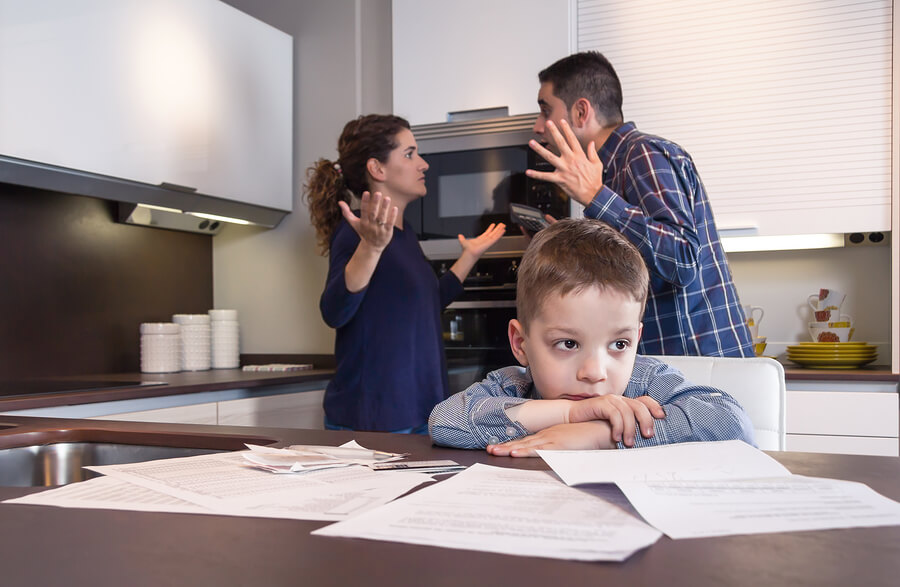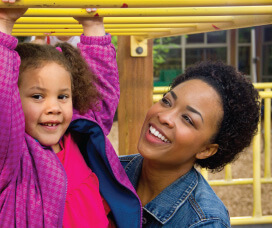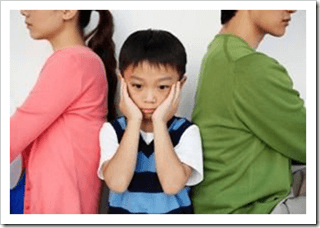Children are deeply affected by divorce: do it right! By Rosalind Sedacca, CDC Children of divorce learn a lot from their parents. They pick up on feelings, both shared and hidden, as well as on spoken and unspoken messages. They watch their parents’ behavior and experience the consequences of the decisions and choices both parents make. Most children can’t express what they’re seeing and learning, but they know what they feel. And they understand what it’s like to be confused, angry, hurt or afraid. If your child could tell you what it’s like to be in their shoes, you’d likely try to be more sensitive when talking to them or about them. Sadly, most children can’t put their feelings in words -- even teens. So, it’s up to parents who are facing divorce or parenting after divorce, to be especially empathic toward their children. What your
Read More
By Rosalind Sedacca, CDC As a Divorce & Parenting Coach I’m often asked “What are the secrets to successful co-parenting after divorce?” That’s the million-dollar question. And while there is no simple answer, I believe most professionals will agree the smartest strategy is learning how to co-parent respectfully. That means remove anger, hostility or vindictiveness from your interactions with your former spouse and learn how to share co-parenting as loving parents to your kids. Of course, that’s not always easy to do. But it is doable. Learning to master effective communication skills, showing empathy and finding areas of agreement whenever possible go a long way towards diffusing tensions and cooperating as parents. The benefits you derive can be substantial. They will more than make up for the ego gratification you get when holding on to those damaging emotions. Remember, your goal is not to re-establish your adult relationship. It’s to
Read More
parenting after divorce By Rosalind Sedacca, CDC Sadly, divorce is a time when we experience disconnection. We disconnect from our former spouse. Too often we often have to disconnect from time spent with our children as well. That’s why it is important for you to strengthen your bond with your children. Find ways of strengthening or at least maintaining your connections during this challenging period of transition. This is equally true, when you are living with your children as well as when you are apart. That’s the basis of a Child-Centered Divorce. Children want and NEED to know they are still loved, valued and cared about. Show them, tell them and keep in close communication with them – during the happy times and the sad ones. They need to feel they have a safe place to turn, a shoulder to cry on and a non-judgmental ear
Read More
By Rosalind Sedacca, CDC Sadly, divorce is a time when we experience disconnection. We disconnect from our former spouse. Too often we often have to disconnect from time spent with our children as well. That’s why it is important for you to strengthen your bond with your children. Find ways of strengthening or at least maintaining your connections during this challenging period of transition. This is equally true, when you are living with your children as well as when you are apart. That’s the basis of a Child-Centered Divorce. Children want and NEED to know they are still loved, valued and cared about. Show them, tell them and keep in close communication with them – during the happy times and the sad ones. They need to feel they have a safe place to turn, a shoulder to cry on and a non-judgmental ear when they need it. If divorce has
Read More
Divorce catches kids in the middle By Rosalind Sedacca, CDC If you’re a parent, divorce doesn’t end your relationship with your former spouse. It only changes the form in some specific ways. It is still essential to create a working relationship focused on the optimum care and concern for your children. Every co-parenting relationship will be unique, affected by your post-divorce family dynamics. However, there are guidelines that will enhance the results for children in any family. Here are some crucial points to keep in mind to maximize your co-parenting success. Respect your co-parent’s boundaries: Chances are your former spouse has a different parenting style than you, with some conflicting rules. Rather than stress yourself about these differences, learn to accept that life is never consistent and it may actually be beneficial for your kids to experience other ways of doing things. Step back from micro-managing
Read More
Be aware of the emotional toll of divorce on children! By Rosalind Sedacca, CDC: Parenting is always complex. Parenting following a divorce can add many other layers of distraction and confusion to the mix. That makes it even more important for parents to be aware of how their children are responding to the divorce. Misunderstanding your child’s stage of development One common error parents make is misunderstanding their child’s stage of development. That can lead to irrational and unrealistic expectations. Too often parents will assume that their child has a better handle on their emotions and a deeper understanding of human nature than is really possible at their age. So when their child acts out or otherwise misbehaves, it’s easy to misinterpret their intentions. Parents mistakenly see children, even teens, as little adults who bring adult reasoning and comprehension to daily circumstances. With that mindset, it’s
Read More
Divorce catches kids in the middle By Rosalind Sedacca, CDC Many families time their separation or divorce for the summer months to take advantage of the school break. But for many other families the divorce decision comes in the midst of the school year. January is one of the most common months to start the process. There are several reasons why this sometimes becomes a necessity. Many couples considering splitting decide to wait until after the holidays to break the news to their children. Others wait to take advantage of year-end job bonuses so they’ll have the extra funds to cover attorney, moving and other related expenses. Still others are faced with unexpected circumstances that accelerate the decision to divorce. Regardless, it’s not the why that should be concerning us at this time – it’s the how. How are we as parents going to approach this separation
Read More
By Rosalind Sedacca, CDC Let’s face it, divorce impacts everyone in the family. But it doesn’t have to scar your children if you remember to put their emotional and psychological needs first when making crucial decisions. Keep in mind that every decision you make regarding your divorce will affect the wellbeing of your children in a multitude of serious ways. Of course, the emotional scars are not only harder to see, they’re also much harder to erase. Here are 6 clear ways to avoid scarring or wounding your kids as you move through your divorce and transition into your new life afterwards. 1) Stop conflict and fighting around the kids! Studies show time and again that it is conflict and tension around children that creates the most difficulties for them related to divorce. It’s not the divorce itself! That means parents can ease the process for their kids by eliminating
Read More
By Rosalind Sedacca, CDC parenting after divorce When the “other woman” is in the picture, divorce can be vastly more complicated for divorcing parents. But the challenges that can come with the "other woman” don't change the parenting rules. When you’re a parent it is essential that you don’t make the big “never do” mistakes when talking to your children – as tempting as it may be to do otherwise. These “no-no” mistakes include: Sharing adult information with your kids, even teens. Don’t bring up the OW unless the children already know about her. Don’t discuss adultery and other complex adult issues, despite the hurt and pain you’re experiencing at this time. Instead, reach out to a therapist or divorce coach for professional help and support. Confide in your friends – not your kids! As tempting as it may be, minimize the conversations about the why
Read More
By Rosalind Sedacca, CDC Children are affected by divorce Not surprisingly, guilt is often an integral part of the equation for parents coping with divorce. No parent wants their child to have to go through the turmoil of a parental divorce or separation. This is especially true for the parent initiating the divorce. Sometimes the internal battle over whether to move ahead with the divorce can go on for years before the final decision is made. Complicating matters is the anxiety connected to breaking the divorce news to children and fear of the consequences for each child. Often, parents don’t want to discuss the divorce after the initial conversation. It brings up anxiety about what our children will be saying and reluctance to hear feedback that will produce sadness, anger or guilt in us. In addition, it may also be difficult to listen to negative comments
Read More












